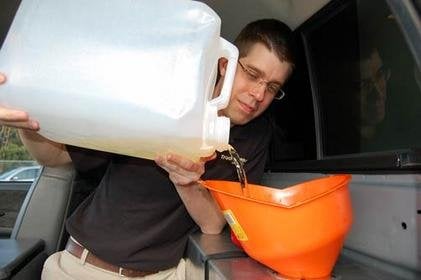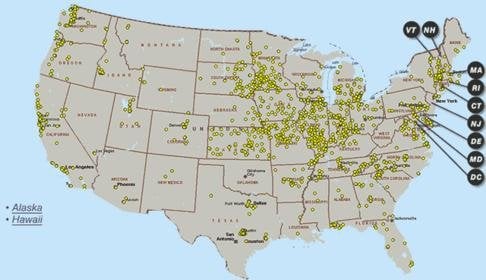Diesel Truck with Veggie oil conversion for the ultimate green camper option
Hi Len,
My name is Rich Curtis and I run a Green real estate brokerage and do a lot of green building and alternative energy consulting work. Here's a breakdown of the best way to go green with a truck and camper.
Hybrid - not really an option at the moment. I recently spoke with Toyota Motor corp reps in Japan that said it costs over 2 billion to tool up the factory for a new hybrid so they aren't planning a hybrid tacoma any time soon. To my knowledge none of the other small truker makers have one in the works either.
Electric - you can get an electric small truck but it wouldn't have the power or the range you need.
This leaves Diesel - A standard diesel truck can be converted to run on SVO (straight vegetable oil) or WVO ( waste vegetable oil) and can run at biodiesel without a conversion if you have a station near by.
The conversions cost about $2,400 ish. I'll spare everyone the details here if you want to know more go to the experts at www.goldenfuelsystems.com
What I will say here is that the conversions are easy and very reliable so don't believe the "your truck will never be the same" jargon out there.
Hybrids are great, I drive one but it's still not off the fossill fuel system. Waste vegetable oil is renewable and recycled and free!!!
If you used 1/10th of the land that lay fallow from farming in the U.S. and farmed bacteria in pools which are 90% oil by body weight we could meet the nations current demand for diesel fuel. You can grow in olympic swimming pool of this bacteria in a matter of days, it's totally renewable. You can get more info on this in the book natural capitalism
http://www.amazon.com/Natural-Capitalism-Creating-Industrial-Revolution/dp/0316353000/ref=pd_bbs_sr_1?ie=UTF8&s=books&qid=1195064660&sr=8-1
So to me the ultimate Green Camper would be a ford f-350 with a utility bed for extra storage and a four wheel Grandby and a veggie oil conversion running on waste vegetable oil. You get a big burly truck a spacious camper and the guilt free pleasure of travelling on cost free and fossill free fuel.
If you want further information you can e-mail me. If you want information on green building or green real estate you can check out my website at www.greenwayproperties.com
Rich


